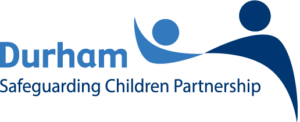Conflict is a normal part of any parent relationship.
It only starts to become a problem when conflict is frequent, intense and not resolved well. The latest research tells us that conflict is harmful to children and affects their mental health, behaviour and success at school.
Parental conflict or domestic abuse
Parental conflict and domestic abuse are two separate things, but it can sometimes be difficult to work out if the relationship is abusive or just in a bad place.
See Relationships Matter on the Durham County Council website which explains the difference.
Practitioner training
Reducing Parental Conflict (RPC) Training is available for all practitioners working with families. This is a full day’s training split over two half days currently ran virtually on TEAMS. Staff briefing sessions are also available however these are most appropriate for supervisors/managers to help raise awareness of the RPC agenda. For course content and how to book please go to Stronger Families in County Durham.
Support for families
Support is available for families on the Relationships matter section of the Durham County Council website, including:
- Parental conflict or domestic abuse
- Relationship support for parents who are together
- Relationship support for parents who are separated or considering separation
Practitioners can support parent/carers, children and young people to access this. Ideally a practitioner should talk through the content of the website with them and then parent/carers, children and young people can access the support available independently. There are a range of self-help tools, information, advice and guidance, virtual chat room and links to more specific support. The website also hosts One Plus One’s evidence based Digital Tools which allow parents to complete on-line courses in their own time – this could be an agreed action/intervention in their Child and Family Plan. There are two ways in which you can access the online course content:
- If a practitioner registers and signs in to access the ‘Practitioner Guides’ they will also be able to see the content of the online courses.
- Parent/Carers can register and sign into the courses, on their own without a practitioner.
Parenting when separated – specialist intervention
We are delivering the Parenting When Separated Programme which is a specialist intervention; it is group-based peer support programme.
This is a practical and positive course for parents who are preparing for, going through, or have gone through a separation or divorce.
The course will support you in ‘Parental Coping and Self Care’, ‘Parenting’ and the ‘Co-parental Relationship’. The programme highlights positive and practical steps you can take to help your children cope and thrive as well as coping successfully yourselves.
This is a six-week course, with an additional one-to-one introductory and follow-up session. Programmes are delivered either in-person or online. Each of the 6 sessions will run for two hours. See Parenting when separated course for more information.
To see whether this programme is suitable or for any questions around it please call or text 07917474856 or email PWS@durham.gov.uk
Useful websites
- Durham County Council – Relationships Matter
- Relationships Matter is a programme where eight councils across the North East have come together to support families in their local areas..
- Parental conflict: the impact on children video from Innovation Unit on Vimeo.
- Visit the Early Intervention Foundation’s RPC Hub for research, resources and toolkits
- Tavistock relationships – Practitioner Guides and Resources which includes a short guide to working with co-parents
- Couple Connection
- One Plus One
- Relate
- Marriage Care
- National Mediation
- Citizens Advice – family
- CAFCASS
Local resources
- Relationships Matter Conference Report – February 2025 (opens PDF on tri.x)
- Relationships Matter – Screening Tool Guidance (opens Word document on tri.x)
- Relationships Matter – Screening Tool (opens Word document on tri.x)
